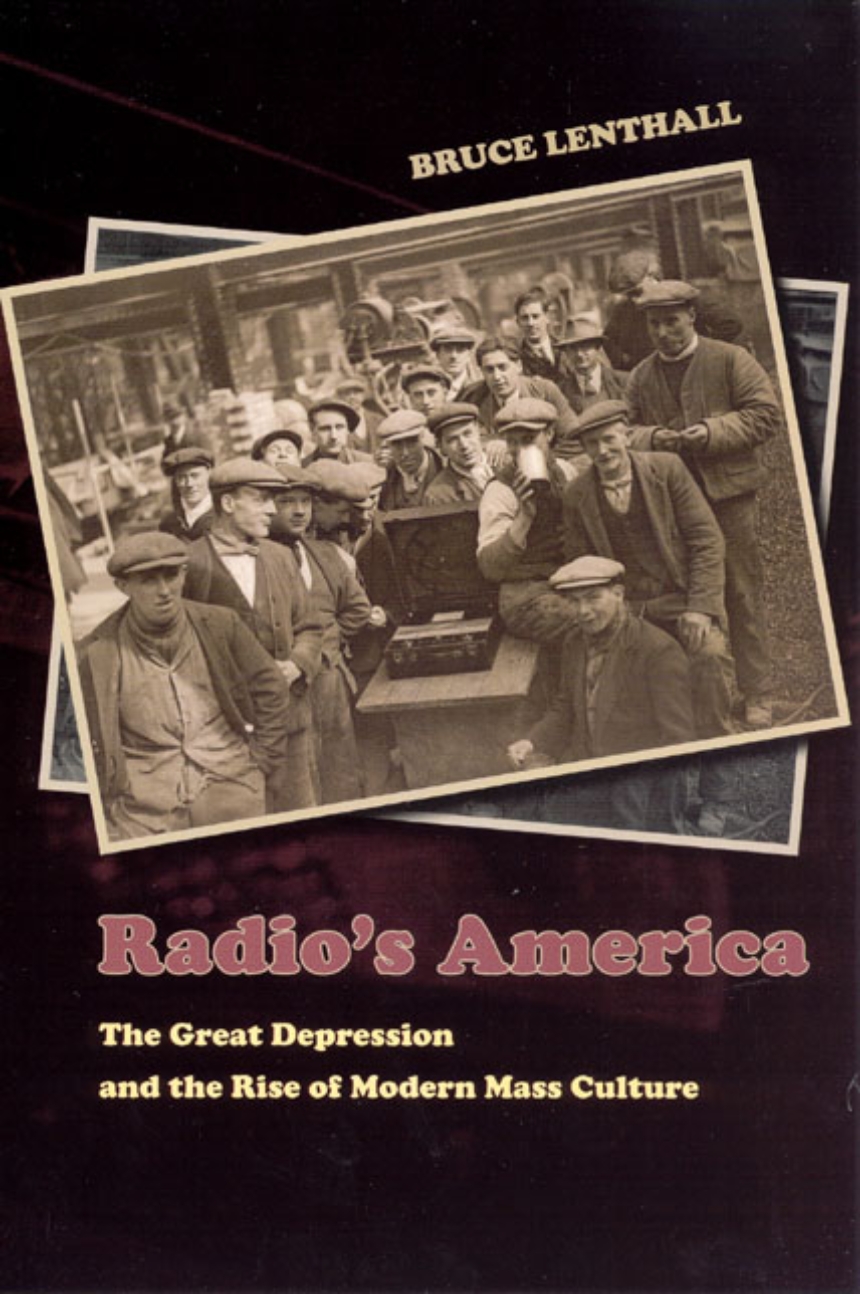Radio’s America
The Great Depression and the Rise of Modern Mass Culture
Radio’s America
The Great Depression and the Rise of Modern Mass Culture
Orson Welles’s greatest breakthrough into the popular consciousness occurred in 1938, three years before Citizen Kane, when his War of the Worlds radio broadcast succeeded so spectacularly that terrified listeners believed they were hearing a genuine report of an alien invasion—a landmark in the history of radio’s powerful relationship with its audience. In Radio’s America, Bruce Lenthall documents the enormous impact radio had on the lives of Depression-era Americans and charts the formative years of our modern mass culture.
Many Americans became alienated from their government and economy in the twentieth century, and Lenthall explains that radio’s appeal came from its capability to personalize an increasingly impersonal public arena. His depictions of such figures as proto-Fascist Charles Coughlin and medical quack John Brinkley offer penetrating insight into radio’s use as a persuasive tool, and Lenthall’s book is unique in its exploration of how ordinary Americans made radio a part of their lives. Television inherited radio’s cultural role, and as the voting tallies for American Idol attest, broadcasting continues to occupy a powerfully intimate place in American life. Radio’s America reveals how the connections between power and mass media began.
Reviews
Table of Contents
Introduction: “The Story of the Century” 1
1 Radio’s Challenges
Public Intellectuals and the Problem of Mass Culture
William Orton and the Mass-Consumption Critique
James Rorty and the Mass-Production Critique
African American Intellectuals and the Mass-Production Critique in Action
Related Solutions
Defenders of the Faith
2 Radio’s Listeners
Personalizing Mass Culture
The Mass Audience Listens
Consumer Bargaining
“When You Can’t Find a Friend, You’ve Still Got the Radio”
3 Radio’s Democracy
The Politics of the Fireside
Roosevelt on the Radio
Radio Democracy: The Politics of Intimacy
Radio Democracy: The Politics of Information
Once and Future Ideals?
4 Radio’s Champions
Strange Gods?
Radio Stars
Voices of the People
Power . . . Corrupts?
Limited Amplitude
5 Radio’s Students
Media Studies and the Possibilities of Mass Communication
Paul Lazarsfeld and Social Pragmatism’s Hope
Herman Hettinger and Commercial Pragmatism’s Faith
Theodor Adorno’s Critical Theory: A Considerably Less Charitable View
6 Radio’s Writers
A Public Voice in the Modern World
Art of the Air
Public Speech, Public Art, and Mass Communication
Modernism on the Air
Muffled Voices
Conclusion
Index
Awards
History Division, Association for Education in Journalism & Mass Communication: Best Journalism & Mass Communication History Book
Won
